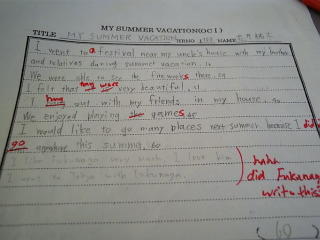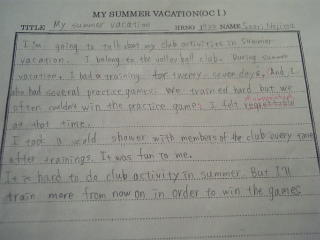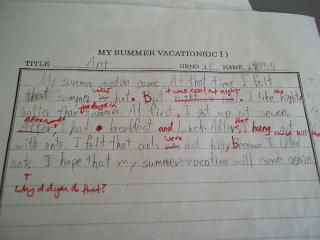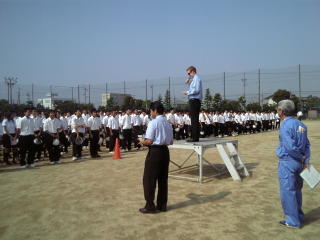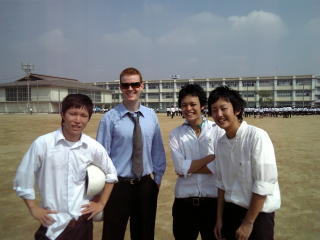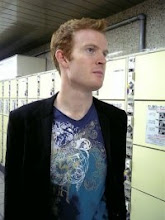
Wait a minutes, comming soon
Major themes:
Alienation from other people, alienation from reality, Attempt at communication with nature to reach true meaning in life, loss of self, fear of black male sexuality, sexual insecurity
Part 1: The calm sea
Summary:
The narrator visits the sea, but though he finds the sea calm, the "billow" is rough. The weather and his spirits are also fine, yet the "billow" is not. Again, it is rough. Still, the narrator explains, he likes the billow. He wonders how the reader feels about the subject, apologizing for not knowing without asking. However, he admits it's a given that the reader will like the sea, or at least likely. The narrator lists the reasons he likes the sea.
Vocabulary:
"billow" - a Japanese-English word that can refer to any one or none of the following: "billow" "billowing" below" "blow" "buy low" "by row"
Analysis:
The writer presents the reader with a common image of the calm sea only to abruptly set the reader foundering with the introduction of the "billow". The term remains ambiguous throughout, defined only in terms of what it is not (ie: not calm, not fine, not the sea, not the weather, not his spirit). The reader is further thrown off-guard by their sudden inclusion into a dialogue with the narrator himself as he asks conversational questions in a rhetorical fashion, presuming to know already the mind of the reader. However, the narrator reveals himself as, despite his rhetorical swagger, not entirely sure of even what he himself thinks; he "believe[s]" he likes the sea. His very thoughts seek outside confirmation. From this one could presume that the questions he asks of the reader are really just offshoots of this modern individual grasping for definite meaning in a world stripped of God and His Word.
Part 2: The dialogue with the sea
Summary:
The narrator begins to stare at the sea itself when suddenly he hears the voice of the sea calling out to him. It asks him "Why don't you do your best?" He is somewhat confused by the experience, but the sea consoles him, telling him "Don't be afraid."
Analysis:
The "mysterious things" of the sea foreshadowed previously are revealed in this section. One cannot read this passage without being reminded of Camus' The Stranger, when a man walking along a beach with the hot sun burning down on him suddenly commits a senseless murder. However, in this Stranger-esque experience, this sea does not urge the narrator to kill, but just to "do your best." The previous passages alienation from self is found here along with a need to find answers outside oneself in nature - even to the extent of an imaginary dialogue with the sea - rather than to confront the enormous responsibility of defining one's own life. There is a suggestion that this might even lead to a sort of madness; one is left unclear on whether the narrator realizes this as an imaginary or actual situation.
Part 3: The Negro and the many slender body of suntanned woman
Summary:
The narrator, on the same beach with the calm sea (presumably with the "billow" as well) spots a large (African-American) male. The man stares at nearby women suntanning. The narrator watches the man pick up a straw hat caught in the wind and return it to the owner. Picking up a shell, the narrator catches the man as he "shined up" to the lady. The narrator, and others watching, are shocked at the nerve of this "Negro".
Vocabulary:
"a big part of body"- a man with a large, muscular frame
"Negro" - relating to or characteristic of or being a member of the traditional racial division of mankind having brown to black pigmentation and tightly curled hair, from the Spanish word for "black".
Analysis:
The narrator suddenly shifts from himself to a description of an apparently licentious "Negro" at the beach. This shift can only be intentional, to shift both the focus and the blame for his problem onto someone else. This "impudent" African-American makes a convenient scapegoat - as he has so many other times in history. The narrator, if he is to be believed, is a passive observer of the ravaging of women on the beach by this "Negro", which leaves him shocked, exclaiming "MY LORD" along with the other onlookers. However, as often the case, this overt sexualization and fear of the black man really is a sign of both the sexual frustration and repression of the narrator himself. Why else does this anger or shock him so if it is not that this black man is willing to both openly seek and indulge passions the narrator cannot even admit to wanting, let alone satisfy? Rather than dealing with his dark desires, he simply projects them onto this other man, seeking to fool himself and draw the reader as well into propping up his fragile psyche. The final statement of "I'm a genuine excellency" just strikes the reader as a desperate cry from the narrator out into this emptiness of personal denial and existential meaningless as if to overpower and fill it up with bravado; full of sound and fury, signifying nothing.
